If you were sitting around thinking of songs connected to The Mountain State, “Sweet Georgia Brown” probably wouldn’t be on your list.
It wasn’t on ours either, even though we had loved and played the song for decades. But then about a dozen years ago, the late Dave Peyton dropped some song news on us at a jam session.
“Hey, man,” we remember him saying with a big grin, “it's a West Virginia tune!”
Of course, Brother Dave was absolutely right. Composer Maceo Pinkard, who went on to become one of the greatest composers in the Harlem Renaissance of the 1920s and '30s, was born in Bluefield, W.Va., where he got his education.
While Pinkard wrote hundreds of tunes, including many for stage and screen, this 1925 jazz standard was his greatest one. Yes, she might have been a sweet Georgia peach, she had West Virginia roots.
Bluefield Boyhood
Son of a West Virginia coal miner, Pinkard was educated at the Bluefield Colored Institute, class of 1913, and wrote his first major song — called “I’m Goin’ Back Home” — the following year. (Today Bluefield State University holds a week-long festival each year in honor of its famous alumnus.)
Pinkard had already formed his own orchestra and toured throughout the United States as conductor. In 1914 — at age 17 — Pinkard founded a theatrical agency in Omaha, Nebraska. Three years later found him in New York City creating Maceo Pinkard Music to sell compositions to national publishing companies.
In the decade beginning in 1921, Pinkard produced a rich catalog, including such hits as “Sugar,” "Gimme a Little Kiss, Will Ya Huh?", “Here Comes the Showboat” and “At Twilight.”
Another Pinkard composition from that period — “Them There Eyes” -- was a favorite of the great Billie Holiday, who recorded in 1939 on OKeh. It was one of the legend’s signature tunes when she performed at George Wein’s Storyville jazz club in Boston in 1952.
Meanwhile, Bix Beiderbecke, with sidemen Gene Krupa and Benny Goodman, recorded Pinkard’s "I'll Be A Friend with Pleasure" in 1930.
Sweet Miss Brown
The song that would top Maceo Pinkard’s obituary in 1962 was co-written with lyricist Ken Casey.
Soon after “Sweet Georgia Brown” was composed, it was introduced by bandleader Ben Bernie. As Bernie's nationally famous orchestra did much to popularize the number, Pinkard cut Bernie in for a share of the tune's royalties by giving him a co-writer credit.
While the song today is an iconic jazz standard, it was not an instant hit. Bing Crosby recorded it in April 1932 with the Isham Jones Orchestra, reaching No. 2 in the charts. Four years later, Cab Calloway sang it in the movie The Singing Kid.
Other Renditions
It wasn’t until 1949, though, that “Sweet Georgia Brown” reached its peak of popularity when it was recorded by Brother Bones and His Shadows. This novelty version, complete with whistling and bone-cracking, was a huge hit, spending 12 weeks on the Billboard charts.
This version is the one you might know best, because it was adopted as the theme song of The Harlem Globetrotters basketball team starting in 1952. Still today they use it for their "Magic Circle" when the players warm up, passing around the ball and displaying their techniques and dexterity.
Incidentally, a decade and a half later, The Beatles even had a comic version of the song. Their rendition contains the line In Liverpool she even dared / To criticize the Beatles' hair / With their whole fan club standing there.
But Who Is Miss Brown?
About Miss Brown’s real-life identity, as those who regularly quote the Bible like to say, well, it’s a mystery.
Ken Casey’s original 1925 lyrics make a number of references to African American culture. His rhymes make clear he’s talking about a sweet brown-skinned woman from Georgia, possibly a prostitute, some say. The second verse, for instance, begins, Brown-skin gals, you’ll get the blues, Brown-skin pals, you’ll surely lose.
Or was Miss Brown a white lady? In 1911, Dr. George Thaddeus Brown of the Georgia House of Representatives and his wife, Avis, welcomed a baby girl. Shortly after the child’s birth, the Georgia General Assembly passed a resolution stating that the baby would be named “Georgia” after the state.
Years later, in the lady’s obituary, The Miami Herald wrote:
According to family legend, it was her father who immortalized her when he met composer Ben Bernie in New York. A medical student at the time, George Brown told the composer about his family, including his youngest daughter with one brown eye and one green eye. Bernie whipped up lyrics to a melody by Kenneth Casey and Maceo Pinkard.
Lots of errors here. Besides identifying Bernie as the “composer,” note that it was the 1890s when Dr. Brown attended post-graduate medical school in New York, decades before his daughter Georgia was born.
Beyond that, there is a question of propriety. Dr. Brown’s offspring would have been — what? — 14 when Pinkard’s song was composed. Would you really celebrate your friend’s teenage daughter with a song that said, Fellas she can't get / Are fellas that she ain't met?
But hey, we didn’t know her, so probably we ought to just keep our opinions to ourselves…
Our Take on the Tune
“Sweet Georgia Brown” has been in The Flood repertoire for a very long time.
For instance, as reported earlier, back in 1977, when The Flood hosted a hootenanny one summer night at the Huntington Museum of Art, an instrumental version of the song was on the set list for the performance by Joe Dobbs, Dave Peyton, Stew Schneider and Charlie Bowen. Want to hear it? Click the button below:
A quarter of a century after that, the tune was still front and center when it was featured on the band’s first studio album in 2001.
And, as we noted in an earlier article, “Sweet Georgia Brown” was on the set list for back-to-back shows on a magical weekend in the summer of 2002. Click the button below for a sampler of the tunes we played in those gigs, featuring solos by Joe and Dave, along with Chuck Romine, Doug Chaffin and Sam St. Clair:
Today, a couple decades further along, “Sweet Georgia Brown” is still a showcase for all the folks on The Flood bandstand. In this 2024 version, we feature Charlie and Sam, along with Danny Cox, Randy Hamilton and Jack Nuckols.
Swing It S’More?
Finally, if that’s how you like your Flood to roll, you might want to make Radio Floodango’s free Swingin’ playlist part of your day today for a randomize set of similar tunes.




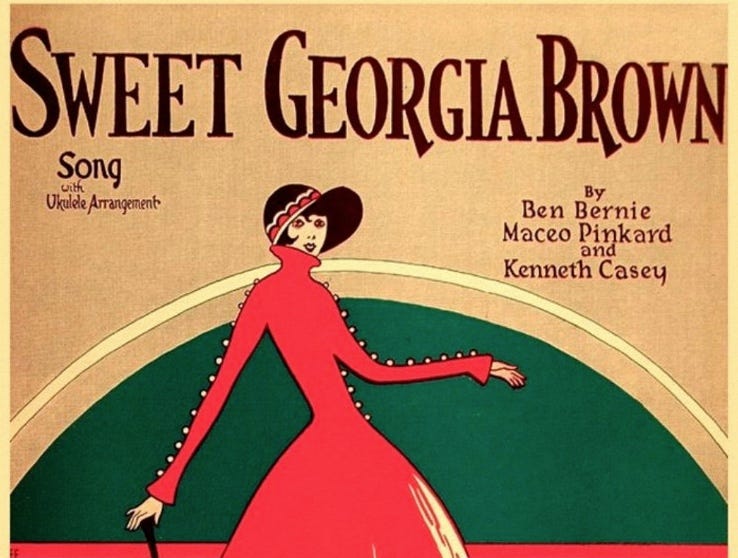
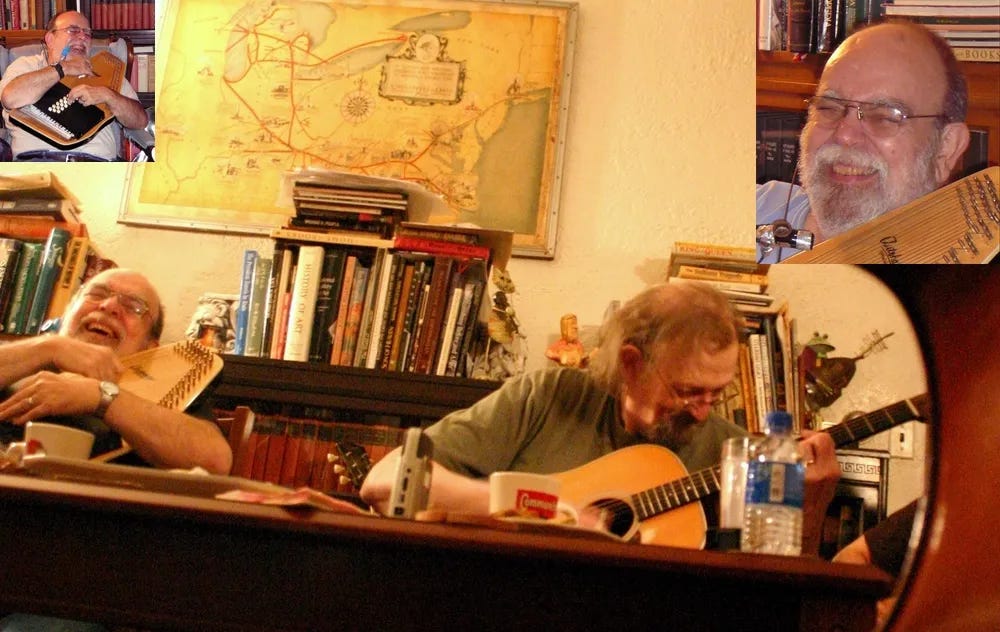


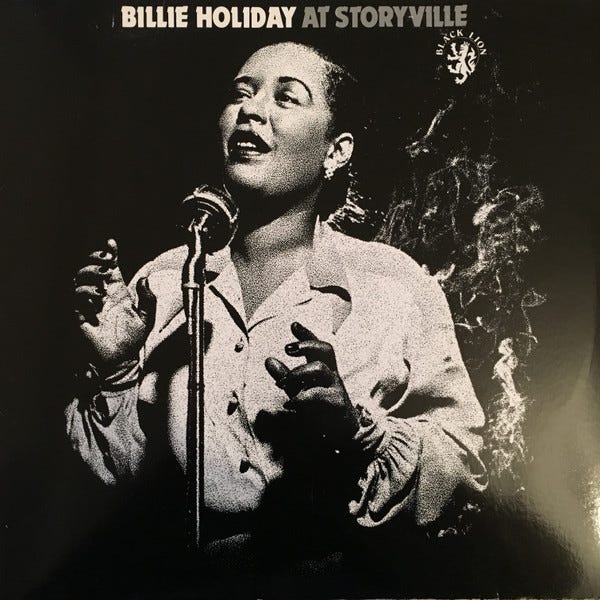

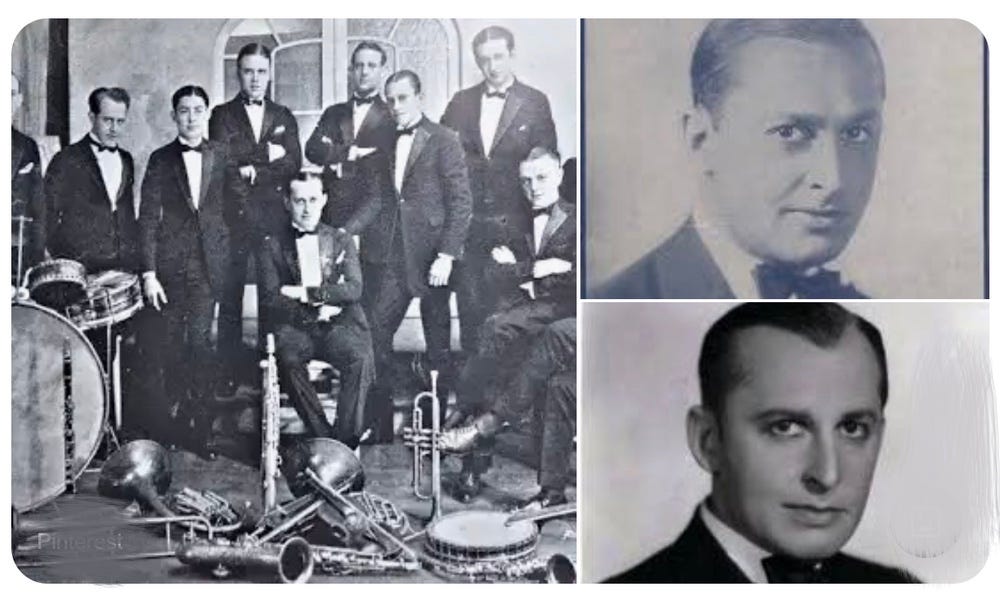
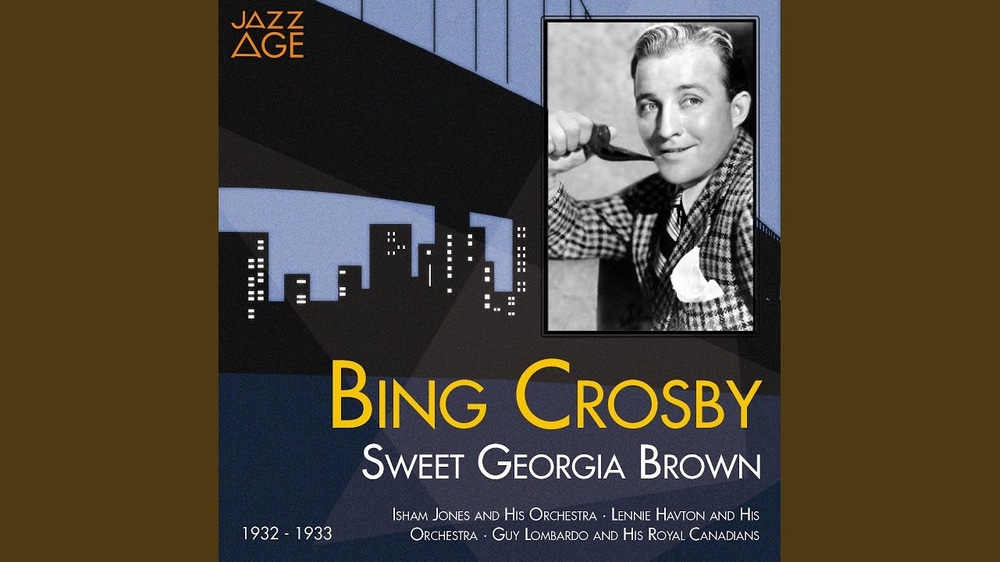




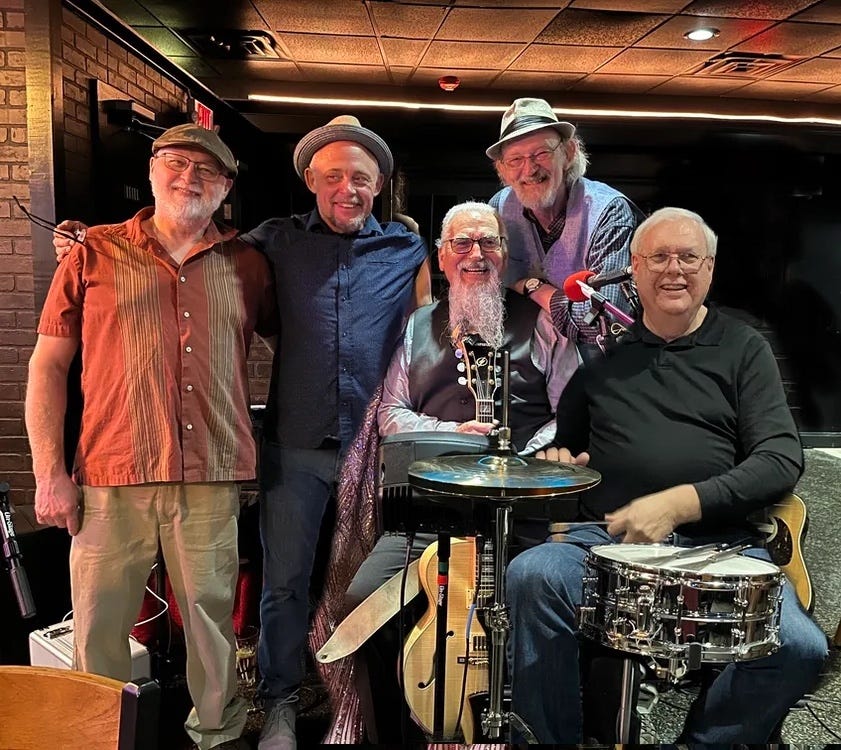










Share this post